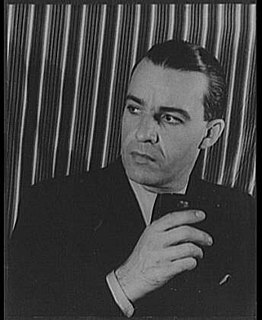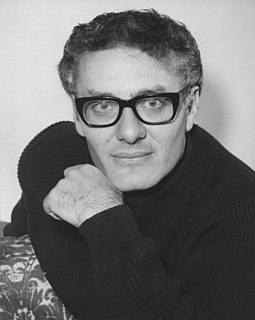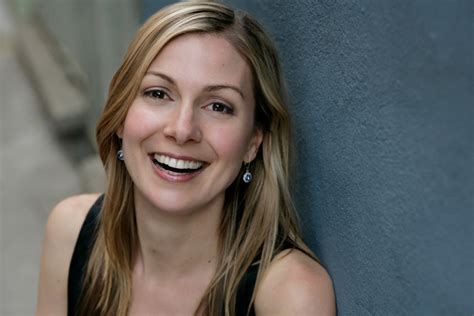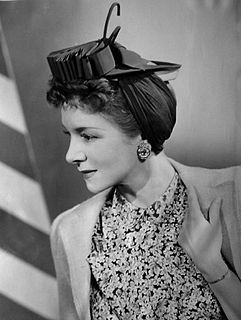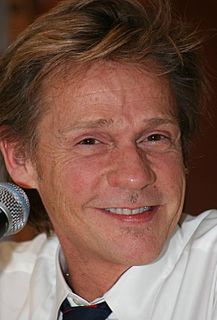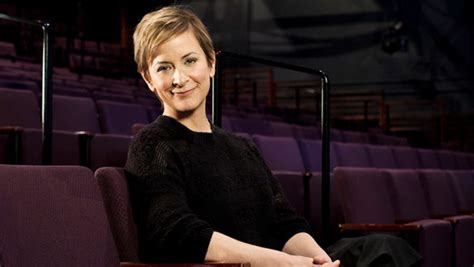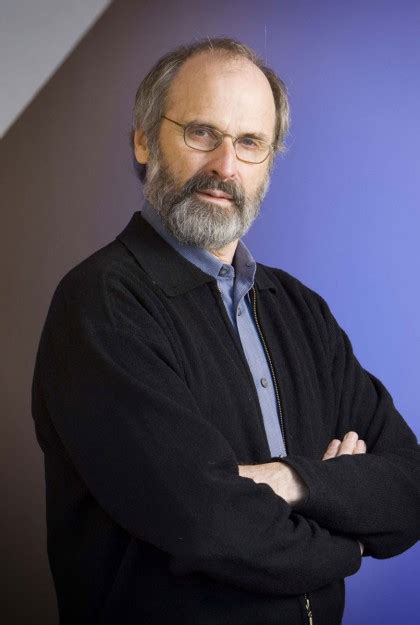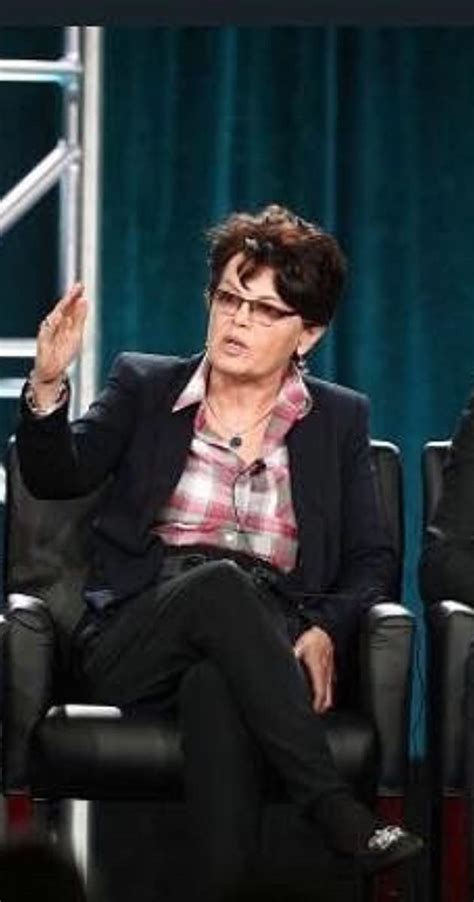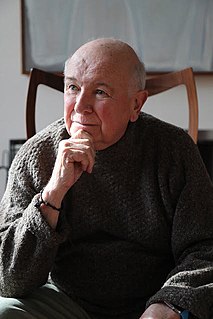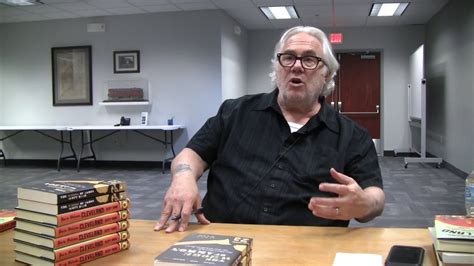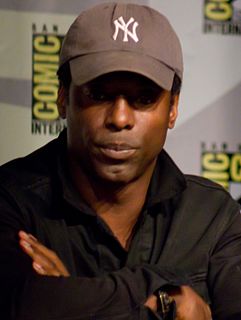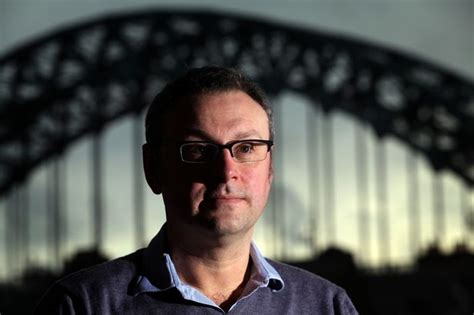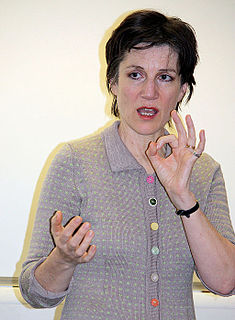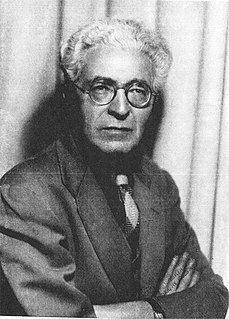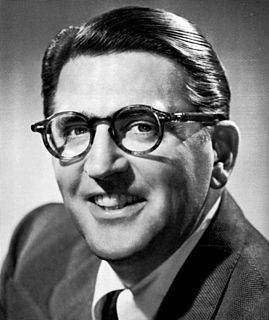Top 116 Playwrights Quotes & Sayings - Page 2
Explore popular Playwrights quotes.
Last updated on December 19, 2024.
There were two writer's unions in those days[ during World War II ] , the studio-friendly guild called the Screen Playwrights, and the more activist Writer's Guild. The studios were fairly upset that their group wasn't effective, and they sought to punish the other union by labeling them as Communists.
What was once a cottage industry dedicated to the discovery and development of new voices and works has become instead the raison d'etre for many a playwright's existence . . .. And since readings have become playwrights' main source of exposure, the nature of playwriting has changed to fit readings' needs. Investigation into what is eminently theatrical has been substituted - more and more these days - by what can simply come across and read well.
Well, one of the things we're supposed to be able to do as playwrights is write from a place of empathy, get into another character's shoes and experience things both mundane and tragic. And people don't - like me right now - people aren't necessarily the most eloquent when trying to express their emotions. I guess I feel as a playwright that those people deserve a voice, too, a voice that isn't so articulate that they themselves can no longer identify with it.
Whenever I become discouraged (which is on alternate Tuesdays, between three and four) I lift my spirits by remembering: The artists are on our side! I mean those poets and painters, singers and musicians, novelists and playwrights who speak to the world in a way that is impervious to assault because they wage the battle for justice in a sphere which is unreachable by the dullness of ordinary political discourse.
Theater is about interpretation and what an actor and what a director brings to a piece too. I'm open to it every time I work with a director and a group of actors. I have to be open to that interpretation. I'm not one of those hysterical playwrights that come and say, "This is not what I intended to do." It's one rendition of the piece.
We rely upon the poets, the philosophers, and the playwrights to articulate what most of us can only feel, in joy or sorrow. They illuminate the thoughts for which we only grope; they give us the strength and balm we cannot find in ourselves. Whenever I feel my courage wavering, I rush to them. They give me the wisdom of acceptance, the will and resiliance to push on.
A rather ugly thing starts happening: the playwright finds himself knocked down for works that quite often are just as good or better than the works he's been praised for previously. And a lot of playwrights become confused by this and they start doing imitations of what they've done before, or they try to do something entirely different, in which case they get accused by the same critics of not doing what they used to do so well.
I know playwrights who like to kid themselves into saying that their characters are so well formed that they just take over. They determine the structure of the play. By which is meant, I suspect, only that the unconscious mind has done its work so thoroughly that the play just has to be filtered through the conscious mind. But there's work to be done - and discovery to be made.
There are so many new young poets, novelists, and playwrights who are much less politically committed than the former generations. The trend is to be totally concentrated on the literary aesthetic and to consider politics to be something dirty that shouldn't be mixed with an artistic or a literary vocation.
I attacked those Western playwrights who use their influence and affluence to preach to the world the nihilistic doctrine that life is pointless and irrationally destructive, and that there is nothing we can do about it. Until everyone is fed, clothed, housed and taught, until human beings have equal leisure to contemplate the overwhelming fact of mortality, we should not (I argued) indulge in the luxury of "privileged despair."
Some playwrights are obvious influences on younger writers. Arthur Miller (realistic, politically engaged dramas) and Christopher Durang (satirical dark comedies) are examples. But August stands apart, ... He has his special way of seeing things. I remember he and I were at one of those fancy benefits the Rep has. The gay men's chorus was singing, and I was very proud to have brought them into a Rep event. And August says, 'You know, I don't see any black people up there.' That was his focus the lives of black people.
Screenwriting is a terrible way to make a living and I always try to talk anyone out of it. Until you sit in a story meeting with studio executives with no particular ability or actors who haven't even graduated high school telling you exactly how to change your script, you haven't experienced what it's really like to be a screenwriter in Hollywood. Also, unlike novelists and playwrights, you don't own the copyright on your original material. It hurts when you sell a project you love and then suddenly the project you really cared about will never see the light of day.
I'm sensitive about the criticism [for not producing new playwrights], yes. But I'm hip to it as well. I read 500 new plays a year, and 99.99 percent of them are not good. I see no reason to do a new play just because it's new. It's like kissing your sister, a virtue, but so what? It seems to me more worthwhile to take a proven playwright and say, Write something for us.
Most British playwrights of my generation, as well as younger folks, apparently feel somewhat obliged to Russian literature - and not only those writing for theatres. Russian literature is part of the basic background knowledge for any writer. So there is nothing exceptional in the interest I had towards Russian literature and theatre. Frankly, I couldn't image what a culture would be like without sympathy towards Russian literature and Russia, whether we'd be talking about drama or Djagilev.
I wrote my first play at the age of 10, 55 years ago, and I've always found it a fantastic relief to imagine I know what things would be like from the point of view of other individuals and to send out signals from where I actually am not. Playwrights never need to write from the place where they are.
You have to get beyond your own precious inner experiences. The actor cannot afford to look only to his own life for all his material nor pull strictly from his own experience to find his acting choices and feelings. The ideas of the great playwrights are almost always larger than the experiences of even the best actors.
I did a thing called 24 Hour Plays, a thing they do every year on Broadway. A bunch of playwrights and actors get together, you write a play and you act it out in 24 hours, literally. People pay and the money goes to charity. So I did one - I was horrible. I was bad. I was terrified. And I was like, "Oh, I gotta do this again." Because I know I can do it.
The English playwrights of the '50s and '60s didn't really keep writing or getting produced, while the Irish did. There's encouragement for the younger ones also in the fact that Ireland is exceptional in its ability to make theater part of the national dialogue, and it reaches to all four corners of the country.
My generation of playwrights have grown up writing for studio theatres, and so the task of writing for more than ten or so actors is a huge challenge. Logistically, it's like doing an enormous Sudoku. Making sure everyone is in the right place at the right time in the right order instantly sends me into a cold sweat.
Eyeing the traffic circulating the lobby hung with bad art. Big invasive stuff unloaded on Stanley Bard in exchange for rent. The hotel is an energetic, desperate haven for scores of gifted hustling children from every rung of the ladder. Guitar bums and stoned-out beauties in Victorian dresses. Junkie poets, playwrights, broke-down filmmakers, and French actors. Everybody passing through here is somebody, if not in the outside world.
In England, when we're at drama school, we spend a lot of time learning the craft from playwrights and stage actors, who are very well trained in the basics of acting because they need to get it right the first time - you can't have second or third takes when you're in front of a live audience, unlike in film.
I grew up when one of America's greatest black playwrights, August Wilson, was writing about life in Pittsburgh, but I never saw myself in any of his straight-male plays. And then I see 'Angels,' which was so honest and painful, and it had this black drag queen in it, Belize, with a big heart. I finally had a character to relate to.
There are certainly times in history where power associates itself closely with fields that we would call the humanities, like rulers surrounding themselves with philosophers and poets, or playwrights. We do not live in that moment, and the best way to gauge the proximity of an academic field to power is by salary.





